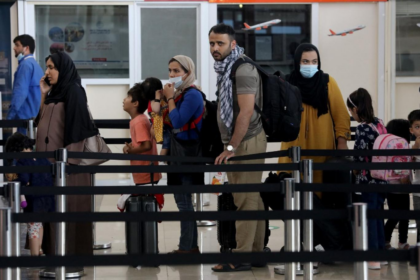RASC News Agency: A well-respected Shiite cleric, Seyed Kazem Amiri, was brutally murdered late Sunday night in Afghanistan’s northeastern province of Badakhshan, in what observers describe as a chilling reminder of the Taliban’s failure to protect religious minorities under their rule. Local sources report that unknown assailants stormed Amiri’s residence in the Shighnan district and viciously killed him in a targeted and deliberate attack. Seyed Kazem Amiri had long served as a distinguished teacher of Islamic sciences in the Kishm district and had traveled to Shighnan on a religious outreach mission. Despite his longstanding commitment to religious education and inter-communal harmony, he appears to have fallen victim to the deteriorating security landscape in Taliban-controlled Afghanistan.
No individual or group has yet claimed responsibility for the assassination, and the Taliban authorities despite their frequent claims of establishing law and order have remained silent. The lack of swift condemnation or investigation from the de facto regime has only amplified suspicions of indifference or even complicity on the part of local Taliban security forces. The murder has sparked widespread outrage across religious and civil society circles. Religious scholars, community leaders, and political activists have condemned the killing as a cowardly act of violence that threatens to destabilize the fragile religious fabric of northern Afghanistan. Many have called for immediate, transparent investigations and the prosecution of those responsible demands that have so far been met with official silence.
Citizens in Badakhshan, both Sunni and Shiite, have described the killing as a profound blow to inter-sectarian unity. In a region historically known for peaceful coexistence, the assassination has raised fears of a growing trend of sectarian and ideological cleansing under a regime that offers little protection for minority voices or dissenting clerics. Under Taliban rule, clerics who do not align with the group’s ultraconservative Sunni ideology face increasing danger. Observers note a worrying pattern: independent religious figures are being sidelined, intimidated, or eliminated, and the religious space is being monopolized by loyalists who conform to the regime’s dogma.
Badakhshan, with its ethnically and religiously diverse population, has long required careful governance and respect for pluralism. But instead, the Taliban’s rule has been marked by repression, exclusion, and rising insecurity. The assassination of Seyed Kazem Amiri is not only a tragedy for his community but a stark indictment of a regime that systematically fails to protect the very people it claims to govern in the name of Islam. In a political environment devoid of independent oversight or accountability, the Taliban’s failure to act has further undermined their credibility. For many, this silence is not just negligence it is complicity in the erosion of Afghanistan’s social cohesion and the spread of fear and sectarianism.
As long as the Taliban continue to suppress independent religious voices and turn a blind eye to targeted killings, Afghanistan will remain entrapped in a cycle of fear, division, and injustice far removed from the peace and unity that religious scholars like Seyed Kazem Amiri dedicated their lives to fostering.






